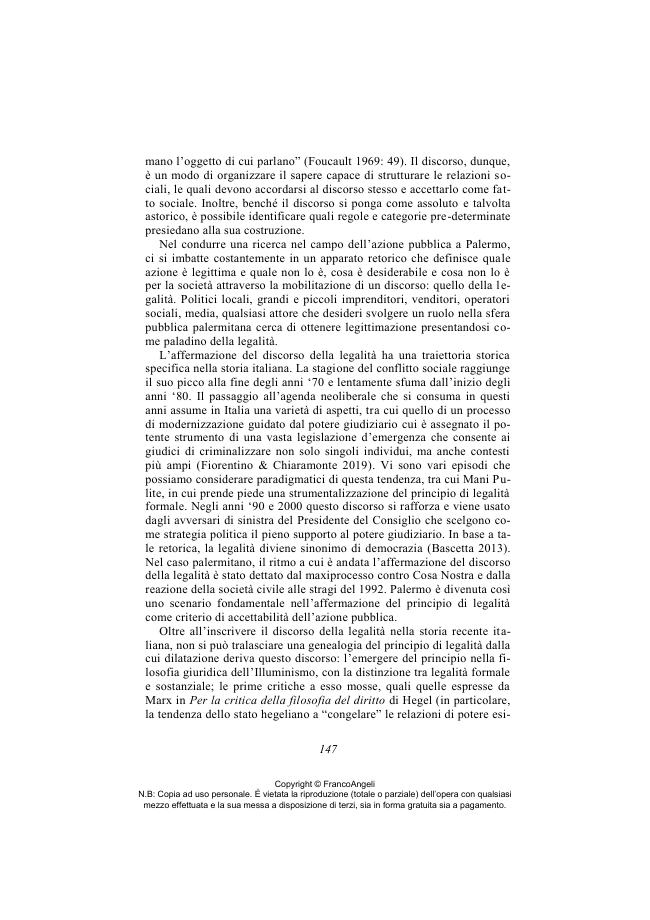Beni comuni e discorso della legalità : il caso di Palermo
139-155 p.
The movement for the commons has emerged in the past decade in opposition to neoliberal policies of privatization of resources and services. It claims the right to occupy publicly- and privately-owned spaces and to use them according to the principles of self-government and direct democracy. In the Southern European context, the movement for the commons has focused on the grassroots restructuring of public services otherwise eroded by austerity policies.
This paper investigates the trajectory of the movement for the commons in Palermo and highlights how a social mobilization with a critical approach towards private property and socioeconomic inequalities has been partially co-opted by the public administration through an institutional rhetoric promoting legality and participation in public spaces. From the legal point of view, this process translated into the negotiation of a top-down administrative, regulation establishing that the commons should be managed through a public-private partnership. The risk is both the political weakening of the movement for the commons and the social marginalization of vulnerable subjects inhabiting the city centre. [Publisher's text].
Is part of
Sociologia del diritto : 3, 2019-
Articles from the same issue (available individually)
-
Information
ISSN: 1972-5760
KEYWORDS
- Commons, Social movements, Property, Neoliberalism, Legality, Southern Europe



